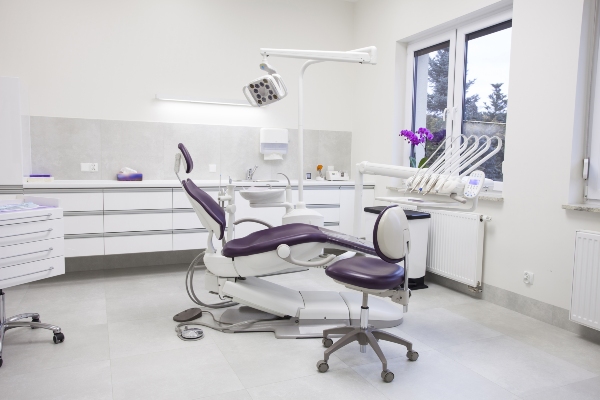4 Questions to Ask Your Dentist About Sleep Apnea

Sleep apnea is a sleeping problem in which breathing stops and begins intermittently. People with the disorder cannot obtain a proper night's sleep and are tired during the day. Fortunately, the condition can be treated by seeking the dentist's assistance.
Sleep apnea: Frequently asked questions
The following are questions to ask a dentist about sleep apnea:
What is obstructive sleep apnea?
This type of sleep apnea is a disorder in which the tongue muscle and adjacent muscles around the tongue relax abnormally, obstructing the airway during sleeping. Breathing ceases when the airway is blocked, resulting in decreased blood oxygen levels. When the brain detects a person's inability to breathe, it wakes them up momentarily so they can reopen their airway.
Is sleep apnea a problem for people of all ages?
Yes, sleep apnea affects people of all ages, but it affects men the most. According to the National Health Institute, sleep apnea affects around 4% of middle-aged males and 2% of middle-aged women. People who are at risk for sleep apnea include:
- Overweight people
- Those who snore excessively
- Patients with high blood pressure
- People whose parents suffer from sleep apnea
Is obstructive sleep apnea harmful to one's health?
Yes, sleep apnea is detrimental to one's health because it stops people from receiving adequate sleep at night and makes them tired and weary during the day. Heart disease, high blood pressure, stroke, personality changes, depression, and impotence are all possible side effects of sleep apnea. The condition can also contribute to low productivity at work and accidents while driving. People who are experiencing symptoms of sleep apnea should see a dentist for examination. They can discuss their therapy choices if they do have the condition.
Is it possible to treat sleep apnea?
Yes, there are multiple options for treating sleep apnea. The following are common treatment options.
Continuous positive airway pressure (CPAP) machines: These devices are used to treat moderate to severe sleep apnea. During sleep, the equipment provides air pressure through a mask. The air pressure created is higher than the ambient air pressure, which maintains the airway open and avoids snoring and apnea.
Oral appliances: Although these devices are not as effective as a CPAP machine, they are viable options for those who cannot sleep peacefully with the machine attached to their nose. By pushing the jaw forward while sleeping, the device keeps the throat open, alleviating moderate sleep apnea and snoring. They are often recommended for mild to moderate cases of sleep apnea. Some patients report that wearing oral appliances makes CPAP more tolerable. Examples of oral devices include mandibular advancement devices and tongue-retaining appliances.
In conclusion
Sleep apnea can make you feel fatigued during the day and lead to serious health complications. Schedule an appointment with your dentist to be evaluated and discuss your treatment options if you have noticed symptoms of sleep apnea.
Request an appointment here: https://www.newyorkdentaloffice.com or call New York Dental Office at (212) 548-3261 for an appointment in our New York office.
Check out what others are saying about our services on Yelp: Sleep Apnea in New York, NY.
Recent Posts
Scheduling an initial visit to a dental practice marks the first step toward maintaining optimal oral health. Proper preparation for this appointment ensures a seamless experience, allowing the dental team to provide the highest-quality care possible. Understanding what documents and information to bring facilitates efficient care, reduces stress, and helps patients feel comfortable and informed…
Dental practices provide essential oral health services to patients of all ages. These services range from preventive and restorative treatments to cosmetic and emergency procedures. Understanding the types of care available at a general dental practice can help patients make informed decisions about their oral and overall health.Preventive care is a cornerstone of dental practice…
Regular visits to a dental practice provide essential care for achieving and maintaining optimal oral health throughout a patient’s lifetime. Beyond treating immediate dental concerns, a dental practice emphasizes preventive care, patient education, and tailored treatments designed to safeguard oral health for years to come. Understanding the role of professional dental care underscores the importance…
Endodontics is a branch of dentistry dedicated to saving teeth by treating problems inside the tooth. It focuses on the health of the tooth's pulp and roots, essential to your smile's overall strength and function. Endodontics could be the key to relieving discomfort and preserving your natural teeth if you are experiencing tooth pain or…



